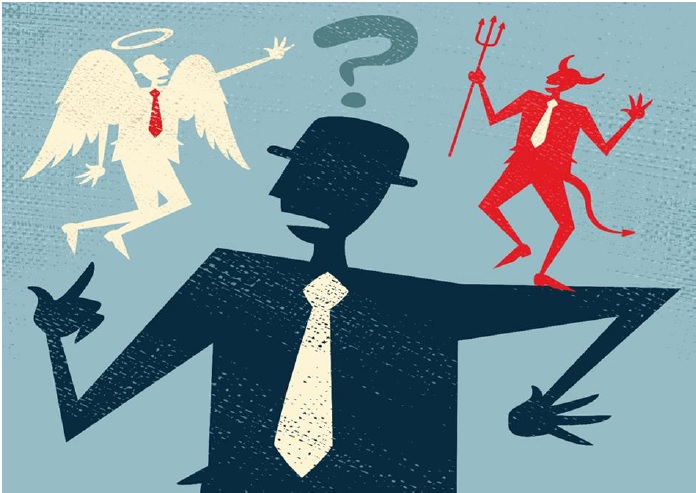
Professional Ethics - Introduction
Rajat and Meera are colleagues working in the same company. They are also in the same team and are working on the same project. One day, Meera confides in Rajat that she is going to quit the company after two months.
Rajat tried to persuade her not to take such kind of decision in haste, but from Meeras determination, he realized soon that she has already made up her mind. She requests him to not share this with anybody else as she hasnt mentioned it to anyone but him, and Rajat promised he wont.
After a week, Rajat was having an off the record conversation with his manager in the parking lot, where he came to know that the management is planning to offer a promotion to either Meera or Rajat; however, the decision is slightly leaning in favor of Meera. If Meera is out of the way, Rajat becomes the automatic choice for the job and he knows that she is going to quit.

Should Rajat keep quiet or tell the manager?
On one hand, he had promised her to keep quiet, although under different circumstances. On the other hand, she is leaving the company anyway, so telling would only ease up the process. What would you have done?
What is Professional Ethics?
More often than not, professionals in a corporate environment face such dilemmas (as Rajat in the above example). Professional ethics examines the moral and ethical issues that arise in a corporate environment.
It has been found that a majority of professionals face ethical problems in their professional life, as compared to non-professionals, mainly because professionals are trained to provide services to the society that cannot be provided by non-professionals.
It is because of the services that professionals provide, they are also eligible for certain privileges and immunities. For example, a doctor is given the right to cut open a patients body because he is trained to cure him of his illness, and is offered immunity from any negative repercussions if something untoward were to happen. Similarly, a police officer is given the right of carrying weapons and he can use them to protect themselves or somebody elses life from imminent danger. Not everybody can operate upon someone and not everyone can protect you from the unsocial elements of the society.
Because of these added responsibilities and complicated scenarios, its difficult to understand the way a person is expected to act under complex situations. Professional Ethics is a way to provide an answer to those difficult questions through extensive training, sharing real-life examples, and following the practices that makes a profession ethical.